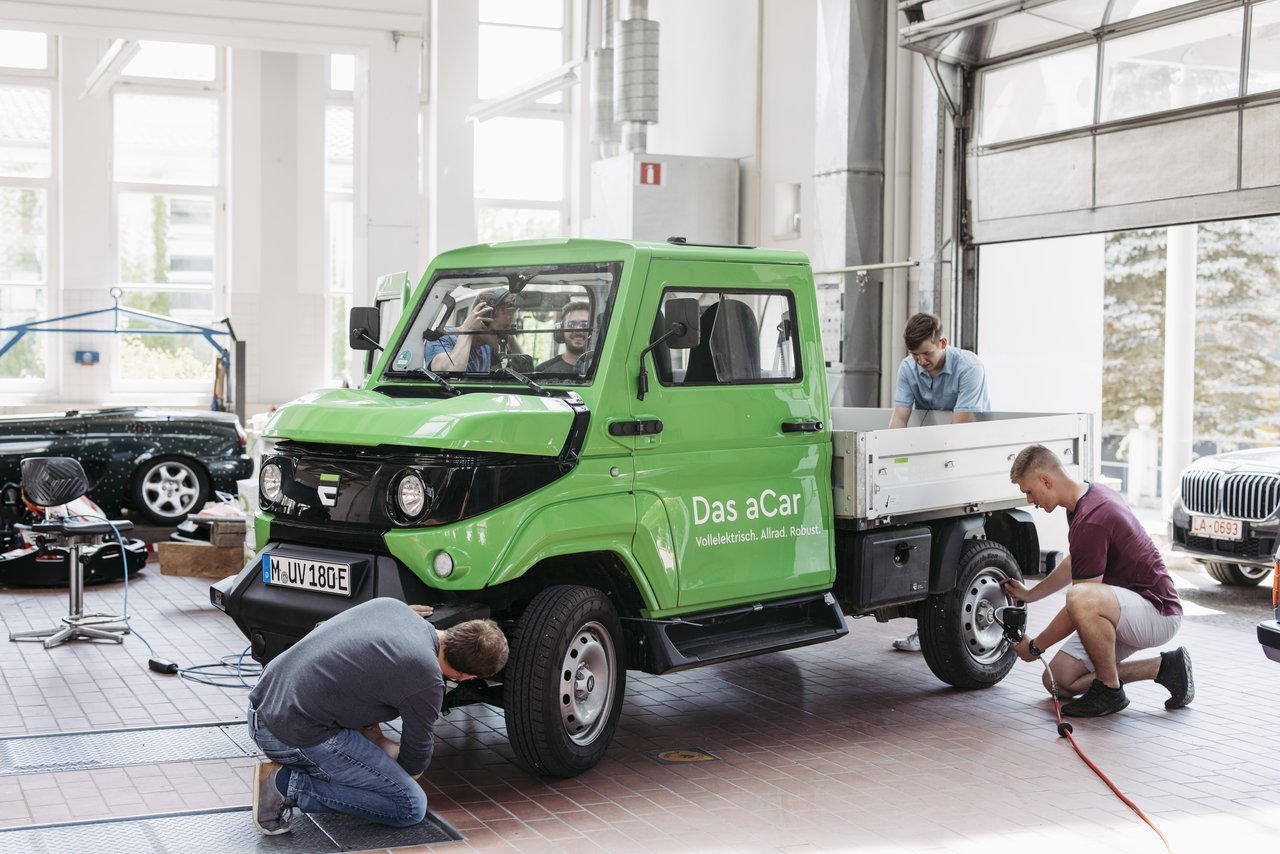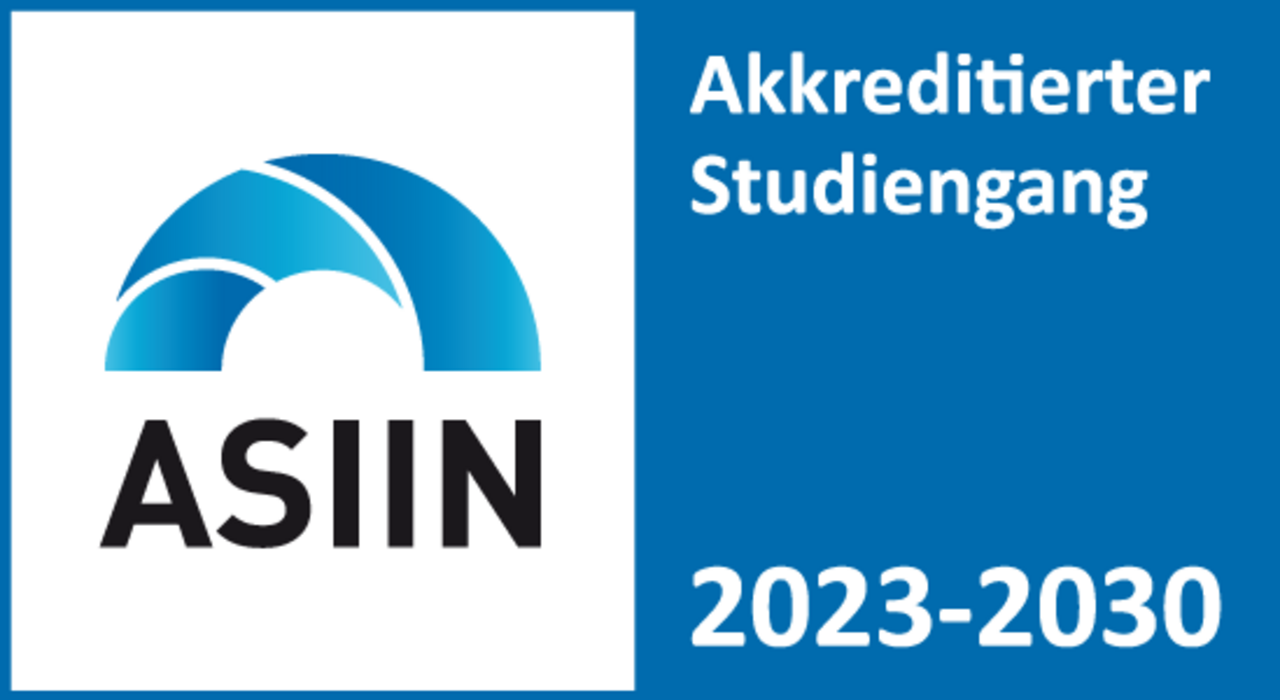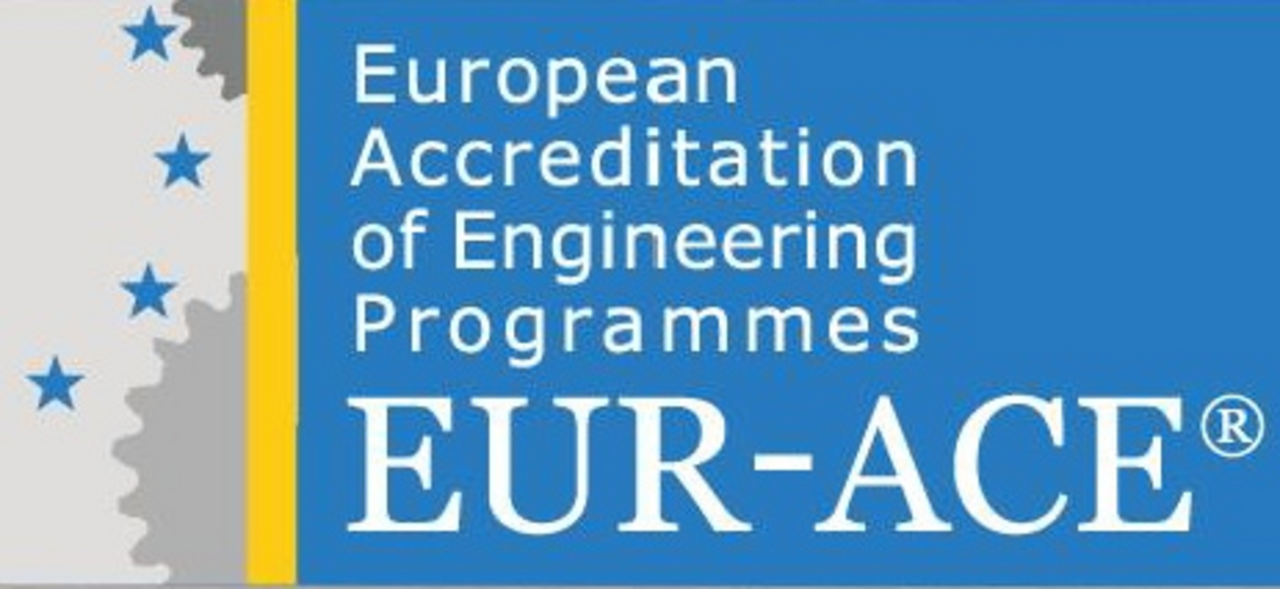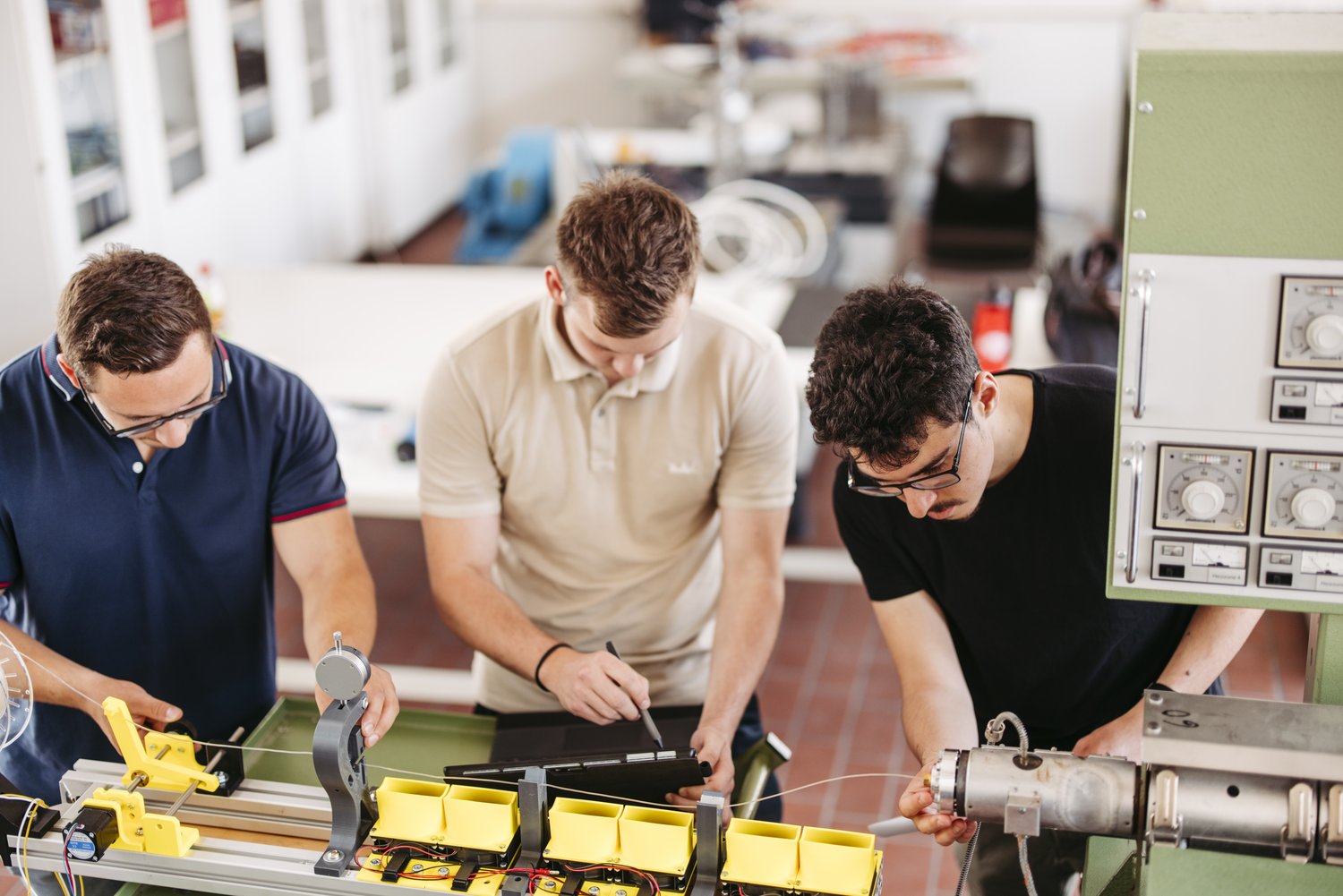


Accredited degree program
Automotive engineering
Bachelor
Rarely has a key industry faced such major technical challenges as the vehicle sector: the shift from the classic combustion engine to alternative drive systems, autonomous driving, new and sustainable vehicle concepts and user-friendly design are just some of the most important buzzwords.
| Start | Winter semester |
|---|---|
| Admission Criteria | Unrestricted admission |
| Application period | 15.04.2025 - 15.07.2025 |
| Study format | Full time, with in-depth practical experience, Joint degree programme |
| Study cost | None (only semester fee) |
| Normal duration | 7 Semester |
| Language | German |
| ECTS | 210 |
| Accredited degree program | |
  | |
Programme content
The Bachelor's degree programme in Automotive Engineering imparts fundamental knowledge and skills in the field of automotive engineering. This includes engineering mathematics, materials science, design, alternative drive systems, vehicle dynamics, electromobility, as well as vehicle electronics and control. In addition, topics such as ergonomics in vehicle construction and commercial vehicle technology are also covered. The programme includes theoretical lectures as well as practical exercises and laboratory experiments to provide students with a solid foundation for their future work in the field of automotive engineering.
Study programme
The degree programme comprises six theoretical semesters and a practical semester in the fifth section. The first three semesters cover basic subject areas such as engineering mathematics, materials science and design, which are deepened in the fourth semester. From the fifth semester onwards, the individual profile is formed by selecting one of seven specialisations, including automotive engineering, automated driving, ergonomics in vehicle construction, motorsport and two-wheeler technology, international vehicle engineering, commercial vehicle technology and construction machinery. In addition to the profile modules, an additional module completes the programme. The programme concludes in the seventh semester with the completion of a Bachelor's thesis. Practical experience is gained in industrial companies as well as technical institutions and public administration offices outside the university, whereby they are supervised by the university and supported by practical courses.
Internship and pre-study work experience
The faculty attaches particular importance to practical teaching content and emphasises the implementation of project work, engineering internships and practical semesters. The final thesis is usually written in a company, which gives students the opportunity to apply their acquired knowledge directly in industrial practice. The pre-study work placement, which takes place before the regular course of study, provides a wide range of insights into various branches of industry and makes a significant contribution to academic development by deepening students' practical understanding.




